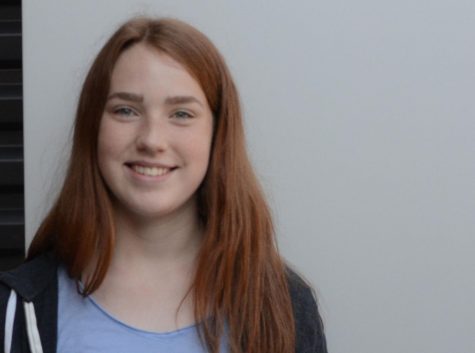Strangers misjudge large families
Today’s society has caused this misjudgment. In the early 1900’s and before that it was normal for families to have six to nine children.
May 17, 2019
Everything is so clear, almost as if it happened yesterday. I was very young, around nine years old. My mom, four sisters, and I were waiting for a stall in a public restroom. An older women walked in, and with eyebrows raised asked, “Are they all yours?” My mom went on to tell her that we were all hers, and she actually also had two boys. Seven children all together.
“Wow I feel bad for you,” the stranger said. “I would hate to have all those kids!” This made me come to the realization that not everyone appreciates big families. I never realized the stares my family and I got as we walked into restaurants or grocery stores. The older I got, the more aware I became of the stares and comments directed to my family, and I began to start drifting away from the group, hoping maybe they would not notice me. It is all too obvious though, with three other siblings that have hair the same ginger color as mine. This is not how a child should feel. Embarrassed to be in public with the people you love, too afraid of the comments that might be said, or wondering what thoughts may be running through their minds.
Today’s society has caused this misjudgement. In the early 1900’s and before that, it was normal for a family to have between six to nine children. They were considered an economic asset and gave parents comfort knowing they would have someone to care for them once they reached old age. 1976 census data showed that six percent of women ages 40 to 44 had seven or more children. By 2006, four decades after the Supreme Court legalized birth control, only 0.5 percent had seven or more. But as expectations for women have begun to change, so does their beliefs and ideas.
The first of these is birth control. In 1916, a woman by the name of Margaret Sanger opened the first birth control clinic. At this time, birth control was illegal and she was sent to jail for 30 days. Her idea was strange and many had difficulties wrapping their minds around it. Morally, people were relative to the fact women were supposed to have children. Why would they want to have sex without having babies? Now that this is legal and birth control is within reach, pregnancies occur less often than they used to.
Women today have the same rights and opportunities as men. But going to college and taking on a career filled with responsibilities is a lot of work and children would not get the time they deserve. Childcare costs are also very high and parents might not want to pay childcare costs for six kids, so instead they may choose to just have two. According to Money Under 30, the average cost for childcare is $972 for one child alone. But this is only the average amount, prices could very well exceed $1,500.
“I was working as a receptionist at Right systems” Adrianna Ross said “And this older man was standing at the front desk talking to me. At some point in our conversation I told him how many siblings I have [six sisters, two brothers]. Then he tells me, ‘That’s why the world is becoming overpopulated.” When hearing this, it makes you recall all the movies and books such as “Divergent”, “The 100”, and “The Giver.” The lack of resources led to the creation of laws that parents could only have a certain amount of children. If the laws were disobeyed, and a family chose to have another child, they would face the consequences.
Big families often tend to have low carbon footprints per person because they are likely to travel less. Parents do not need to buy new clothes for their children because younger children often get hand me downs from the older ones. “There’s a tendency to judge our fellow human beings by the amount of resources they consume, and not factor in what they can give back to the world,”mother of five Jennifer Fulwiler said “Johann Sebastian Bach was the youngest of eight; Celine Dion was the youngest of 14. Thomas Edison was a seventh child, and Benjamin Franklin was his father’s fifteenth.” More people means more ideas, more workers, and more love. So yes each person will consume more. But they are also another person who can help make a difference.
No matter what the reason is, how society has changed large families are always put in a different light. “Look at the shows on TLC that have bigger families,” author Meagan Francis said“One is about religious fundamentalists, one has sextuplets, the other is a family of little people.” Francis said referring to the Duggars of “17 kids and counting,” “Kate plus eight” and “Little people big world.” “You get the feeling that anybody who has more than three kids is either doing it for bizarre reasons or there is a medical anomaly.”
Of all the different reasons for strangers to either admire or dislike large families, there is always that impression that has caused them to percieve things differently. If families are setting a bad example, with children running around screaming or the parents not working with them to behave. All big families get that stereotype that all big families are bad. As a nine year old child my whole perspective changed. I begin to think differently as I’d go out with my family. But if the world could see how great a big family, the idea would no longer be different.






Jessica Hetflaisova • Jan 29, 2021 at 10:32 am
Hi, I love your article, and you’re right, people judge and misjudge. I have 7 children and 6 have red hair?. People in the Czech Republic really discriminate, and the kids get a hard time even from teachers. But we are tough and have each other.